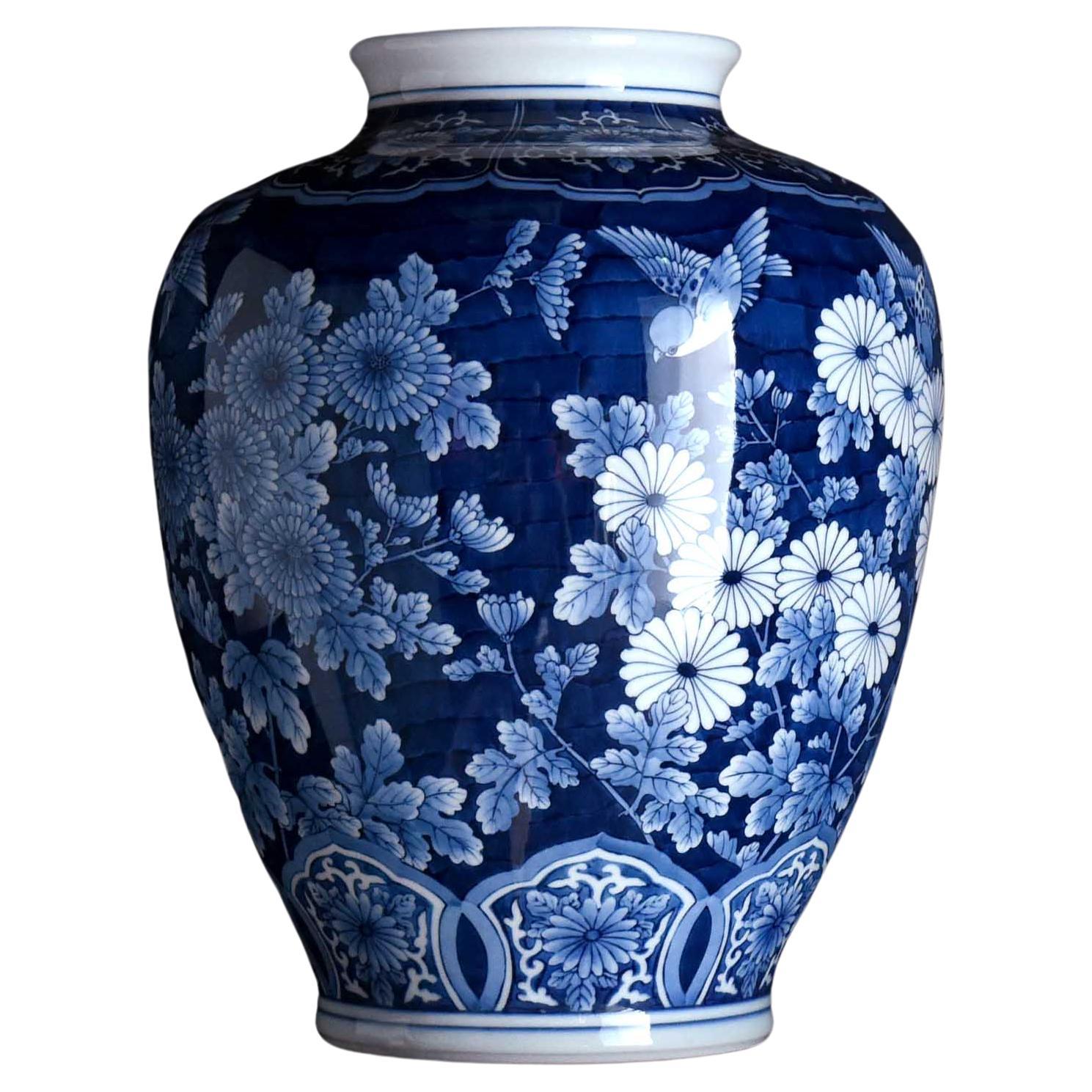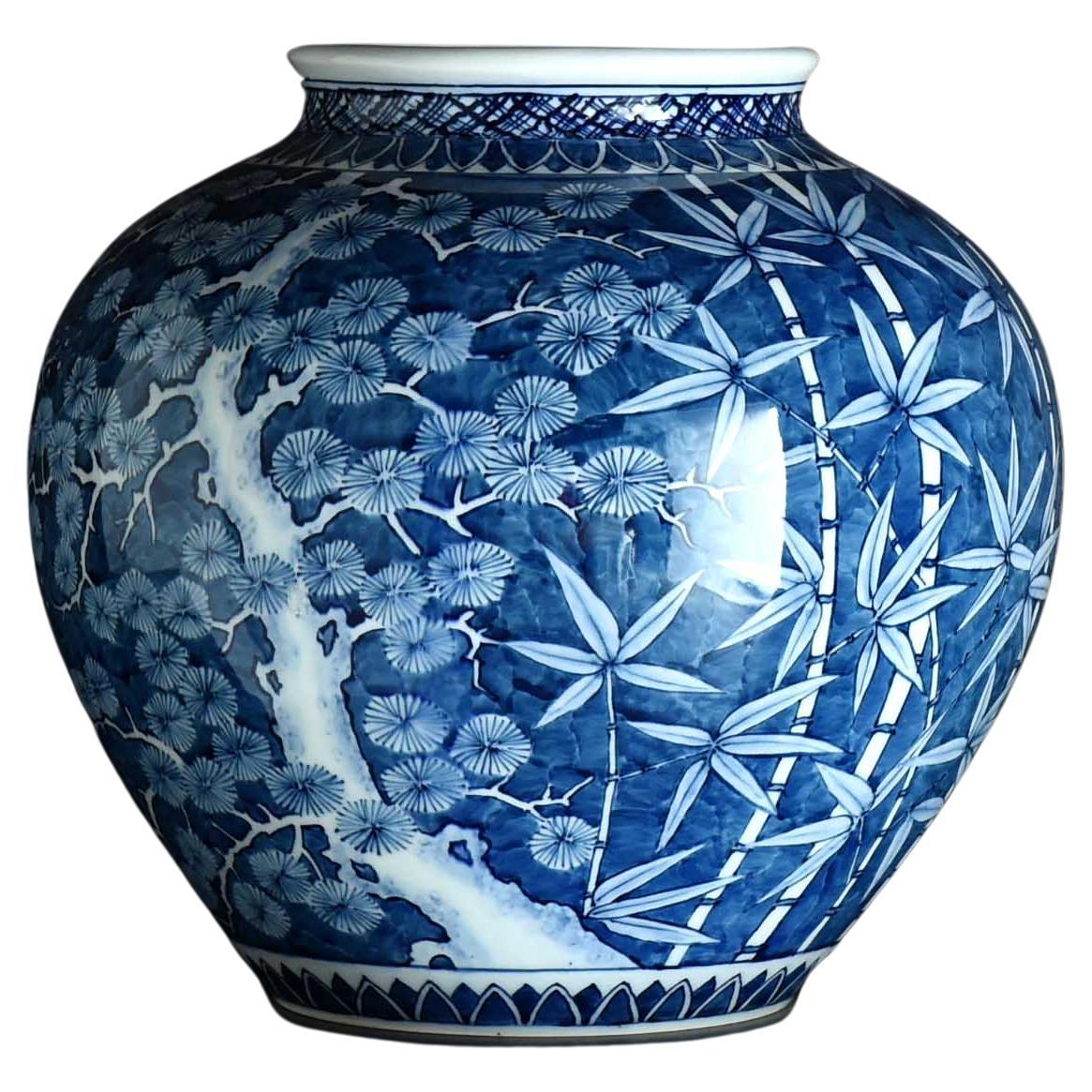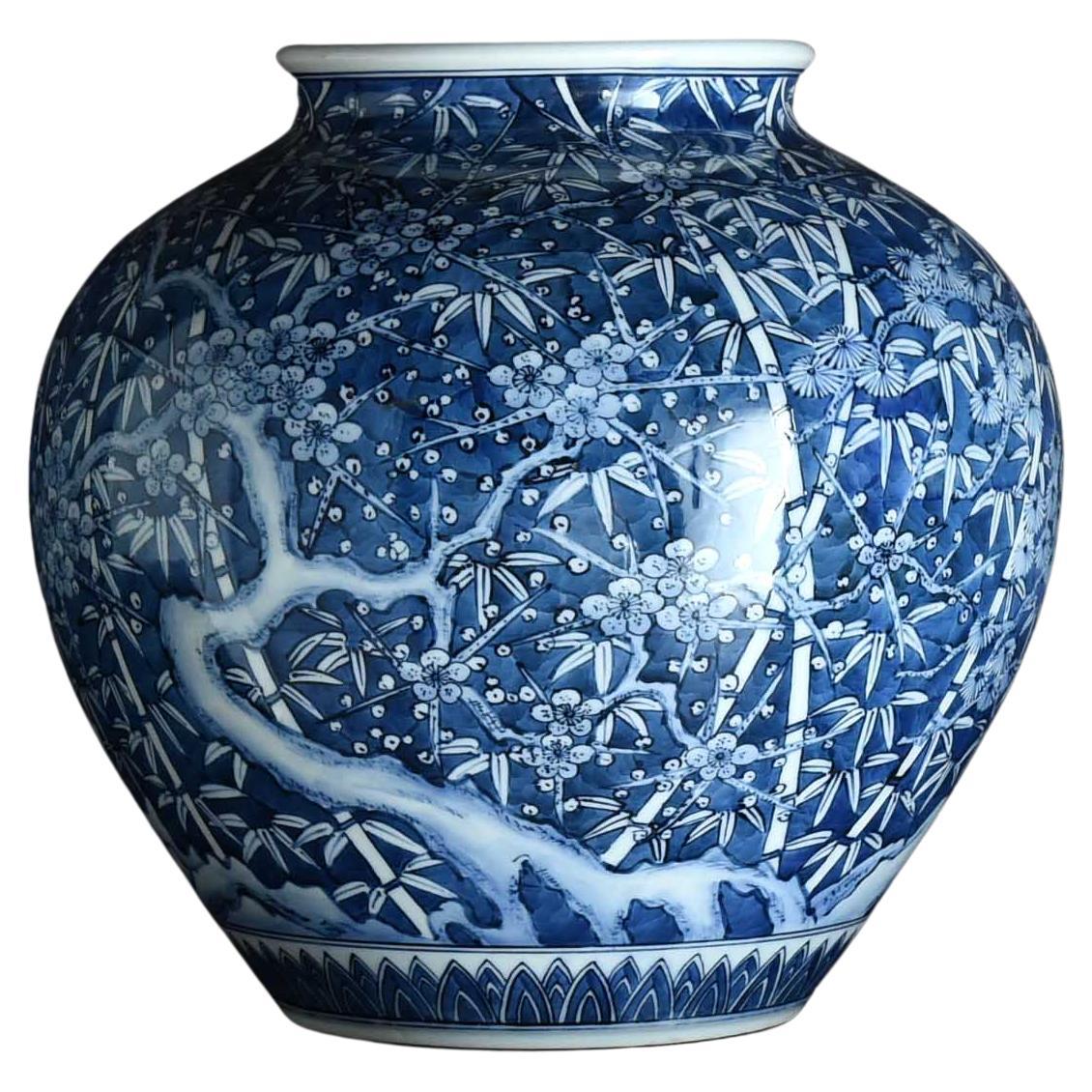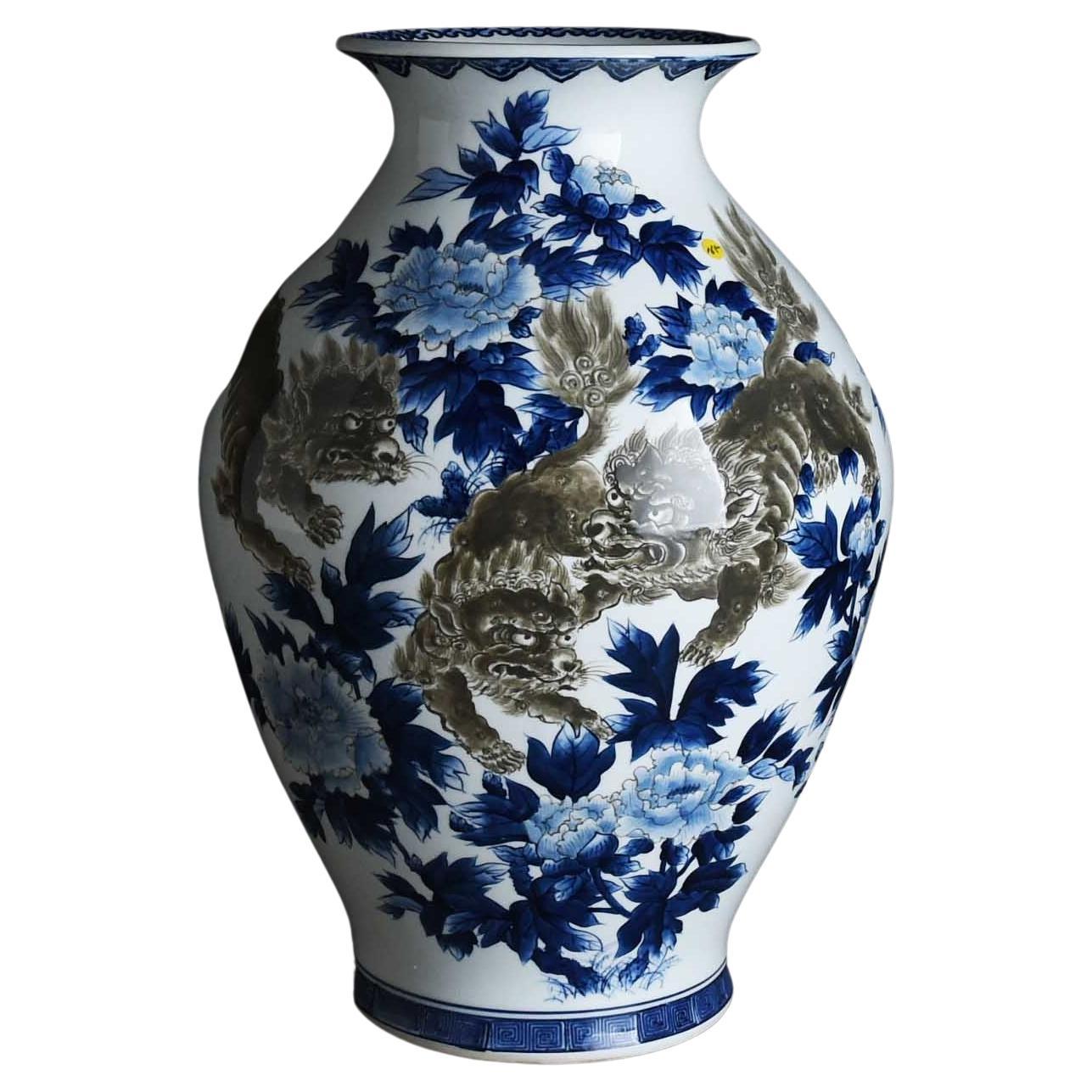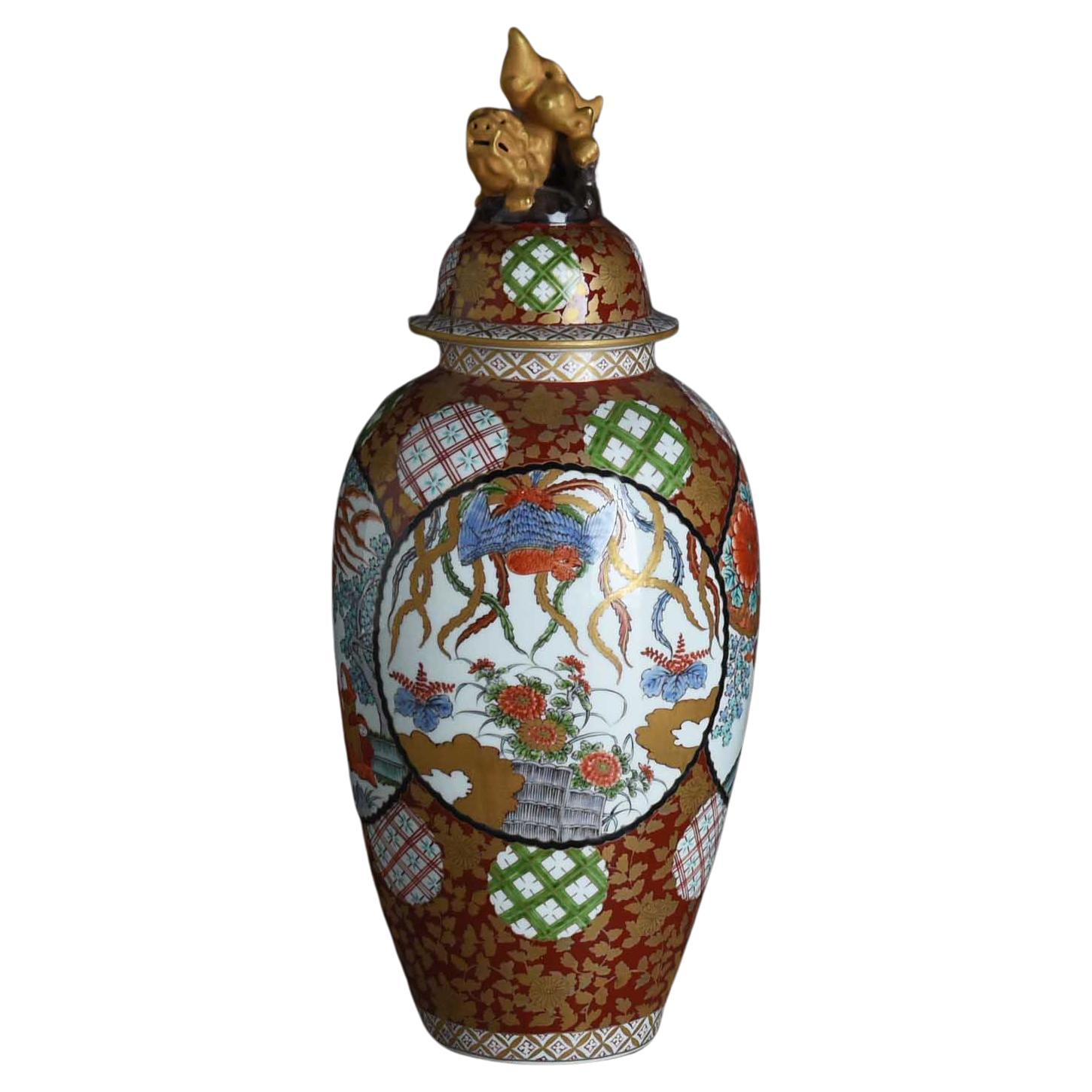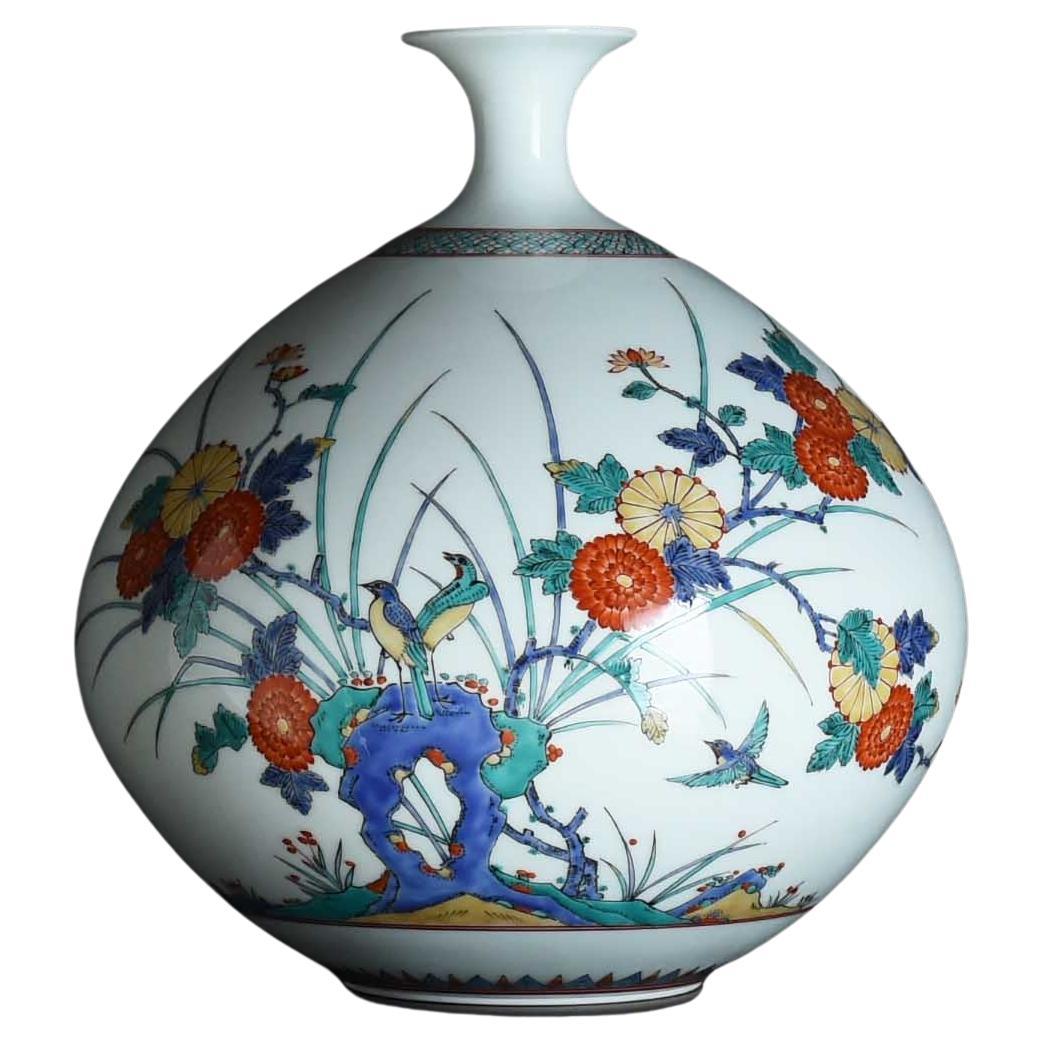Items Similar to Japanese Arita "Sometsuke Karakusabana" Handmade vase
Want more images or videos?
Request additional images or videos from the seller
1 of 5
Japanese Arita "Sometsuke Karakusabana" Handmade vase
About the Item
Hand-drawn. Karakusa is a pattern of twining vines and has the meaning of "prosperity and longevity" as the vines grow vigorously without interruption. It is a very auspicious pattern. The technique involves drawing curved lines that intertwine stems and leaves of creeping vines, and it is said that the prototype of this pattern can be seen in the acanthus leaves on ancient Greek temples and ruins, such as the Doric columns.
- Similar to:Arita (Artist)
- Dimensions:Height: 13 in (33 cm)Diameter: 9.85 in (25 cm)
- Style:Japonisme (In the Style Of)
- Materials and Techniques:
- Place of Origin:
- Period:
- Date of Manufacture:1950-1960s
- Condition:
- Seller Location:Shibuya City, JP
- Reference Number:1stDibs: LU9752239839222
About the Seller
New to 1stDibs
Joined in the past six months.
No Reviews Yet
Vetted Seller
These experienced sellers undergo a comprehensive evaluation by our team of in-house experts.
1stDibs seller since 2024
- ShippingRetrieving quote...Ships From: Shibuya City, Japan
- Return PolicyA return for this item may be initiated within 14 days of delivery.
More From This SellerView All
- Japanese Arita "Sometsuke Damigiku" Handmade vaseBy AritaLocated in Shibuya City, JPHand-drawn. "Dami" is a technique where an outline is drawn on the base and then thick brushes with ink are used to fill in the space.Category
Mid-20th Century Japanese Japonisme Porcelain
MaterialsCeramic, Porcelain
- Japanese Arita "Sometsuke Shouchiiubai" Handmade vaseBy AritaLocated in Shibuya City, JPHand-drawn. Japanese pine, bamboo, and plum are considered auspicious because they withstand the cold of winter and grow steadily.Category
Mid-20th Century Japanese Japonisme Porcelain
MaterialsCeramic, Porcelain
- Japanese Arita "Sometsuke shouchikubai" Handmade large vaseBy AritaLocated in Shibuya City, JPHand-drawn. Pine, bamboo, and plum are considered auspicious because they endure the cold of winter and grow strong.Category
Mid-20th Century Japanese Japonisme Porcelain
MaterialsCeramic, Porcelain
- Japanese Arita "Botan Jishi" Handmade vaseBy AritaLocated in Shibuya City, JPHand-drawn. The lion represents a talismanic symbol for warding off evil. The peony, also known as the king of flowers, is a symbol of nobility and luxury among the hundred flowers.Category
Mid-20th Century Japanese Japonisme Porcelain
MaterialsCeramic, Porcelain
- Japanese Arita "Kinrante Houou" Handmade ornamental vaseBy AritaLocated in Shibuya City, JPHand-drawn. The phoenix is a symbol of peace and happiness, and is considered auspicious. Kinran-de is a technique that originated during the prosperous Genroku period of the Edo er...Category
Mid-20th Century Japanese Japonisme Porcelain
MaterialsCeramic, Porcelain
- Japanese Arita/Imari "Shichihougiku Kachou" Handmade vaseBy AritaLocated in Shibuya City, JPHand-drawn. "Shippo" is a technique in which circles are endlessly connected, and it symbolizes completeness, harmony, and fate. The technique used in this "Akae" style reminiscent o...Category
Mid-20th Century Japanese Japonisme Porcelain
MaterialsCeramic, Porcelain
You May Also Like
- Massive Arita Blue & White Charger - Hand Painted/Gilded - Japan - 20th CenturyBy AritaLocated in Chatham, ONVintage Arita blue and white charger - hand painted - gilt details - massive size - three kiln stilt marks to the base - unsigned - Japan - mid 20th century...Category
Early 20th Century Japanese Anglo-Japanese Ceramics
MaterialsPorcelain
- Japanese Arita Porcelain Tray 'Pliage'By Hands On Design, Denis GuidoneLocated in Milan, ITThis tray is designed by Denis Guidone and handmade in Japan by Risogama for Hands on Design, a traditional pottery. It reminds the Japanese tradition of Origami, the designer uses the white Arita porcelain...Category
2010s Japanese Centerpieces
MaterialsPorcelain
- Unusual Antique 1690-1720 Japanese Imari Mustard Pots Arita Edo JapanLocated in Amsterdam, Noord HollandGratefull to share these two small mustard pots with you. Ca 1690-1720. Miniature mustard pot of baluster shape moulded as an opening lotus flower, on a ribbed conical stem. Curve...Category
Antique 17th Century Japanese Edo Ceramics
MaterialsPorcelain
- Imari porcelain gourd shape, Arita, Japan, Meiji Period.By Imari PorcelainLocated in Gargrave, North YorkshireImari porcelain gourd shaped dish, Arita, Japan, c. 1890, Meiji Period. The unusual gourd shaped dish, hand painted in typical Imari colours, with panels of birds flying amongst plan...Category
Antique 1880s Japanese Meiji Porcelain
MaterialsPorcelain
- Massive Antique Japanese Arita Porcelain Emperor MeijiBy AritaLocated in Hillringsberg, SEThis very large plate made in Japan during the Emperor Meiji time 1868-1912. Wonderful blue pattern on fine porcelain. There is a crack that’s shown thro...Category
Antique 19th Century Japanese Japonisme Ceramics
MaterialsCeramic
- Japanese Arita, Amsterdams Bont, Tripod Salt Cellars, 1690-1730Located in Delft, NLJapanese Arita, Amsterdams Bont, tripod salt cellars, 1690-1730 European decoration on Japanese porcelain. "Arita" porcelain made in Japan, during ...Category
Antique 17th Century Japanese Antiquities
MaterialsPorcelain
Recently Viewed
View AllMore Ways To Browse
Silver Stem Vase
Vase Silver Handmade
Ancient Greek Ceramics
Ancient Greece Ceramic Vase
Vintage Japanese Porcelain Vases
Vintage Japanese Porcelain
Mid Century Japanese Porcelain
Vintage 3 Tiered Cake Stand
Limoges Bavaria
Limoges Coronet
Meissen Sweet Meat Dishes
Minton Coffee Pot
Royal Copenhagen 1680
Royal Copenhagen Full Lace Coffee Pot
Carnets D Equateur
Erte Applause
Flora Danica Sugar Bowl
Herend Cornucopia
